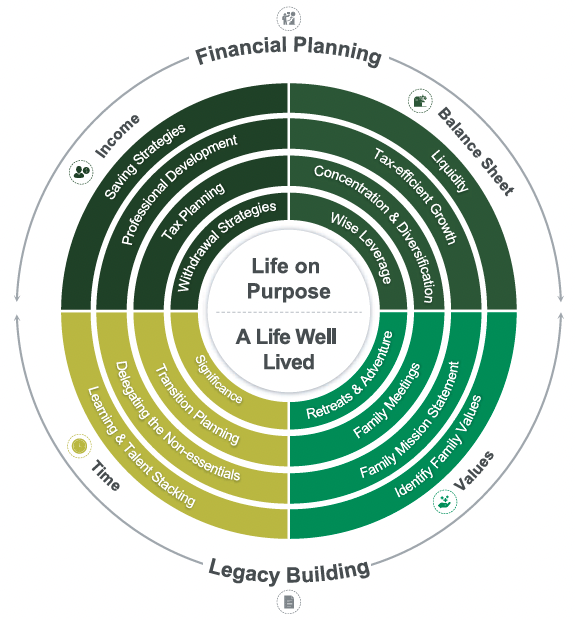It is again that time of year…. NO, not pumpkin spice lattes – it’s time to review health insurance coverage options for the year ahead!
To be sure, the choices are confusing and contemplating health insurance plans is NOT how most of us enjoy spending our fall days, evenings or weekends. As a result, we tend to quickly choose a plan based on what plan we had last year, what plan comes from an insurance brand we recognize… or whatever plan Suzy from accounting uses for her family.
There is not a sure-fire method to pick the right plan for you. But there is one golden nugget of advice that may help you in choosing a plan this year: don’t overlook the high deductible plan option(s). We know the concerns you may have. We get that the high deductible might mean paying more out-of-pocket. And we also know that there are a lot of inaccurate myths about high deductible plans and their HSA partners that cause consumers to overlook or avoid these plans.
So with that said, here is our 2021 version of the “Myths of High Deductible Health Plans and Health Savings Accounts” – written with the hopes that you won’t overlook these plans based on ill-founded myths.
1) If I fail to use the funds that I contribute to my Health Savings Accounts each year, I lose them.
When it comes to acronyms in the medical insurance space, the government did its best to ensure that consumers would be thoroughly confused. For starters, we have the HRA, the HSA, the FSA, and the MSA. There is good reason for consumer misunderstanding. But here’s the thing: HSA’s are not like their FSA predecessors where funds are use-it-or-lose-it each year. When you fund an HSA, you keep the funds until you use them – even if that is 30+ years in the future. If you die with funds remaining in your HSA, the beneficiary(ies) you choose gets the funds.
2) I consume a lot of medical care so the high deductible plan that comes with an HSA will end up costing me more.
This makes intuitive sense. If you spend a lot on medical care, then it would seem to make sense to choose the low deductible policy where the insurer steps in earlier to cover your costs. However, the tax benefits of the HSA for high income earners changes the math. For many employer-provided health plans, it will wind up being cheaper to purchase the high deductible plan in all spending scenarios – even if you’re spending tens of thousands per year on medical costs.
Add your after-tax premium cost savings for the high deductible plan plus any amount the employer contributes to an HSA plus your tax savings for the maximum HSA contribution (generally >$2,500 in tax savings for a high-income family). Now compare this figure to the difference between the out-of-pocket maximums for the low deductible and high deductible plans. If the sum of the savings exceeds the out-of-pocket maximum, then you will be better off with the high deductible plan regardless of how much medical care you consume. The real-life math is demonstrated here.
3) I expect to have major surgery next year so the high deductible plan required for an HSA is cost-prohibitive.
See the explanation above. Many families will still find the high deductible plan plus an HSA is notably cheaper.
4) I’m worried about leaving my current employer and losing the funds in my HSA.
Not only is your HSA not a use-it-or-lose-it account but the account is in no way tied to your employer. Your employer does not have access to see your account balance or transaction history and, unlike with a 401k plan, you can move the HSA funds to another custodian whenever you like – even while you’re still employed. Lastly, any funds contributed by the employer are immediately 100% vested.
5) The HSA custodian that my employer picked has high fees and lousy investment options which makes it cost-prohibitive for me to utilize.
If the 401k retirement plan your employer chooses has lousy options, you’re generally stuck with it until you leave. However, if the HSA your employer chooses is lousy, there is nothing to stop you from immediately rolling over your HSA balance to another custodian of your choosing whenever you like. The employer may automatically make payroll deposits into the lousy HSA but you can immediately move them somewhere else with no penalty or tax cost.
6) I can only use my HSA funds for medical expenses and I don’t really consume a lot of medicine.
You can only use your HSA without penalty for medical expenses before age 65. After age 65? You can pull funds out of your HSA without penalty for any reason – a new car, trip to Europe, big screen TV, etc. Notably, the tax benefits are better if you use HSA funds for medical expenses but retiree health care spending for the average couple is estimated to approach $275,000 which means there’s little risk of overfunding.
7) The medical insurance market is so uncertain right now so I should wait until things settle down to see how HSAs are treated in the future.
HSAs are not going away anytime soon. In fact, we are likely to see an expanded role of Health Savings Accounts in our healthcare system. Even without the certainty of what HSAs will look like in the future, failing to exploit an HSA just because healthcare is still in flux is akin to failing to save for retirement because tax policy is still in flux.
Bottom line
Grab that pumpkin spice latte, turn on the gas logs and check out your health plan’s high deductible options! If you’d like to talk through the options with the big picture in mind, schedule some time with one of our friendly teammates by clicking here!



